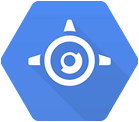Share your requirements and we'll get back to you with how we can help.
Thank you for submitting your request.
We will get back to you shortly.
Let’s Focus on Your App
Implementation
We can build next generation applications for GAE platform leveraging App Engine's various services such as Datastore, Task Queues, OAuth, Memcache, Blobstore, and so on.
Single Sign-On Implementation
Apps on GAE can authenticate users using a Google account or an account on the Google apps domain. We can implement the single sign-on authentication in your app using the Users API which also supports OpenID federated login.
Migration
If you have an application deployed on App Engine's now deprecated Master/Slave datastore, we can help migrate it to the new more stable High Replication (HR) datastore. While migrating apps, we first review your deployed application to identify code snippets that are not HR safe. Then the application is rewritten to make it HR compatible. We start migrating the data only once this is up and running. We also provide and maintain backups during these steps to ensure data is never lost.

